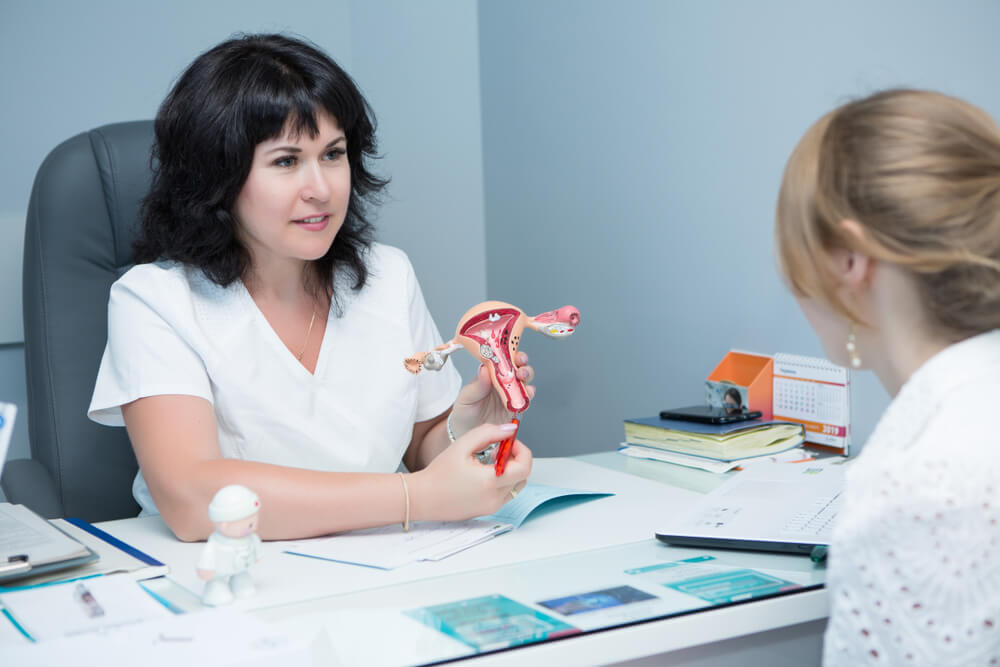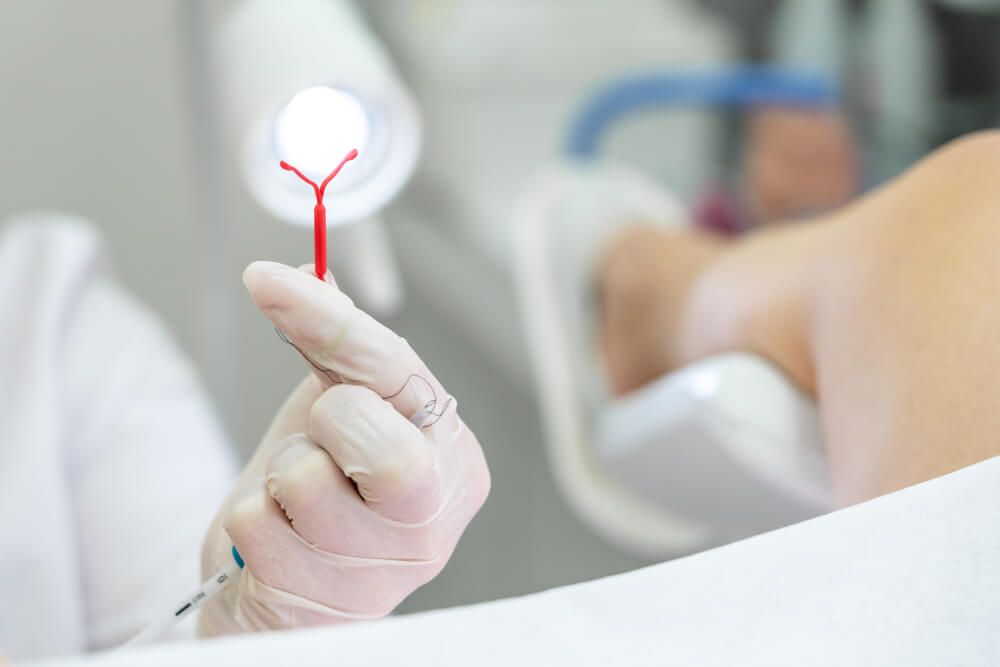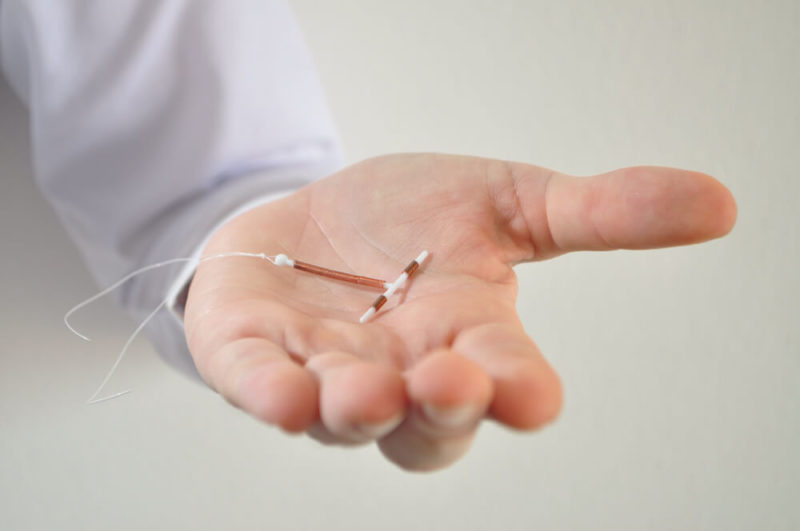Are you looking for safe contraception methods? Condoms can break or tear without you or your partner knowing, and human memory can be faulty; as such, you may not always remember to take the pill. If you really want to be secure, we recommend you consider IUD. Now, this procedure is a little more invasive, but don’t worry. It’s nothing you should be afraid of. Choosing among different IUD types – copper or hormonal – for your birth control is even more secure than opting for contraception pills. Of course, if you decide that you want to become pregnant, just visit your gynecologist for IUD removal.
What’s an IUD, and Who Can Use It?
IUD stands for “Intrauterine device”. It’s a contraceptive device made of plastic and copper that will be inserted into your womb by a qualified specialist. Once inserted, it will protect you from becoming pregnant for five to ten years – unless you decide to remove it sooner, of course.
Copper IUD affects how the cervical mucus works, so inserting an IUD into your womb will make it extremely hard for sperm to get to the egg. Although the copper IUD affects the cervical mucus, it doesn’t worsen your general health at all, so there’s no need to worry about that.
Typically, any healthy woman can use a copper IUD. There are, however, certain risk factors, and this is why you will be expected to have an appointment with your doctor before the procedure can proceed. Here are some questions that you might expect:
- Are you currently pregnant?
- Do you suffer from any untreated STDs?
- Do you have a pelvic infection?
- Do you experience unexplained bleeding after sexual intercourse?
- Do you experience bleeding aside from your regular periods?
- Are there any health problems with your womb or cervix?
- Have you had an ectopic pregnancy?
- Do you carry an artificial heart valve?
The doctor will make their final decision after this appointment. Although these cases are rare, if the answer to any of the previously mentioned questions happens to be affirmative, they may deny the insertion of the copper coil or IUD.
Benefits of Having an IUD

You can have an IUD fitted into your uterus at any part of your menstrual cycle – as long as you’re not already expecting, that is. The good news is that all IUD types work straight away. So, if you’re wondering can you get pregnant with an IUD, you can be positive that you’ll be protected from any unwanted pregnancies as soon as the procedure is complete.
The IUD will not make sex any less pleasurable or desirable, nor will it cause you any discomfort. It does, however, prevent pregnancies very well, being over 99% effective.
Among the IUD types, the copper coil doesn’t react with any medications you are taking. There aren’t any hormonal side effects either. What’s more, there is no evidence that would suggest that having the IUD inserted increases the risk of cancer or other serious health problems.
Much like any method of contraception, inserting an IUD is available for anyone, and that includes minors. You can use an IUD If you’re less than 18 years old.
Finally, you can use a copper coil even if you are currently breastfeeding. That means you can decide on such a procedure shortly after giving birth to your baby – as soon as four weeks after giving birth. It’s also possible for you to get pregnant again as soon as the IUD is removed, but you can’t get pregnant with an IUD still in place.
Risks of Having an IUD
Of course, as with any medical procedure, there are some risks to consider before you decide to use an IUD. First of all, your periods may become heavier, and you might also experience some bleeding between them. Don’t worry, though. This symptom should disappear after four to six months.
Keep in mind that while you can’t get pregnant with an IUD, it is not a protective measure against any STDs. That’s why it’s a good idea to use a condom during sex, even if you have an intrauterine device.
Finally, there is a small risk of pelvic infections becoming more frequent or challenging while using an IUD. If you notice smelly discharge, pain in your lower abdomen, and/or have a high fever, you should reach out to your doctor.
What Should You Expect from Having an IUD Fitted?
As we’ve said before, the IUD is a very effective method of contraception. By preventing about 99% of possible pregnancies and working right away after being fitted, it’s one of the best birth control methods available. That being said, inserting an IUD is relatively invasive, so it’s only natural for you to have your doubts. This is why it’s essential to get familiar with the procedure process itself.
Before the procedure starts, you’ll be tested for infections and STDs and given antibiotics. Next, a doctor or a nurse will have to check the size and position of your womb. If everything is deemed okay, the procedure will start. This means that your vagina will be held open for a few moments so that the medical team can insert the IUD through the cervix and into your womb.
It’s true that sometimes, inserting an IUD can feel uncomfortable, even painful. However, the good news is that in a vast majority of cases, it’s completed within three to five minutes, on occasion, even less. You can also ask the doctor to consider giving you some local anesthetics. If you’re still in pain or uncomfortable after the procedure, you can also ask for painkillers.
Women often start getting period-like cramps not long after having the IUD fitted, but you can easily handle them with some painkillers. Some bleeding may also occur in the first few weeks after an IUD insertion.
You’ll also be recommended to visit your doctor after three to six weeks. They’ll be able to check if everything’s going fine. Be sure to let them know if there are any IUD-related problems you wish to talk about or if you decide to remove this device from your womb completely.
Removing an IUD

If you decide that using an IUD just isn’t for you, you may have it removed from your womb at any time. Thankfully, doing this is also relatively easy. Simply call the doctor’s office to schedule a visit. Remember, however, that an IUD doesn’t guarantee prolonged protection after having it removed – it stops working immediately after the removal. Theoretically, you can become pregnant the very day you have it removed.
It is also a good idea to start using additional protection options, like condoms, a few days before removing your IUD. Also, remember to never remove an IUD on your own and leave that to qualified medical professionals.
Using an IUD is safe and straightforward, and you can have one inserted even if you’re underage. With 99% effectiveness, It’s definitely one of the best widely available contraception methods. Keep in mind, however, that even an IUD won’t protect you from STDs. If you are worried that you might catch a sexually transmitted disease, you should also keep using other contraception methods, such as condoms. If you’re looking for more information on IUDs or want to schedule an appointment at a renowned gynecology clinic, don’t hesitate to contact us at Advanced OBGYN Institute. You can count on our board-certified specialists for all GYN matters.






